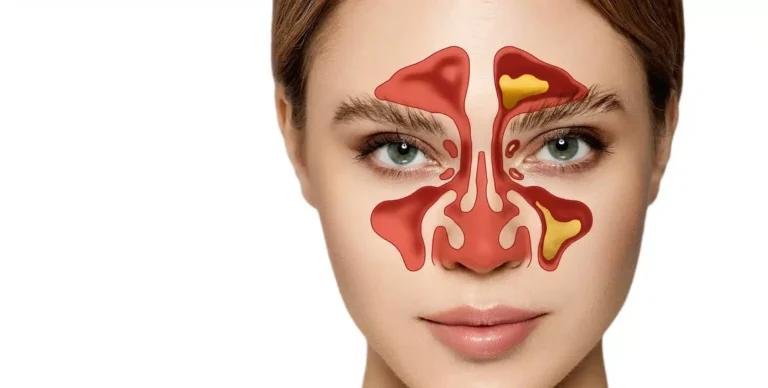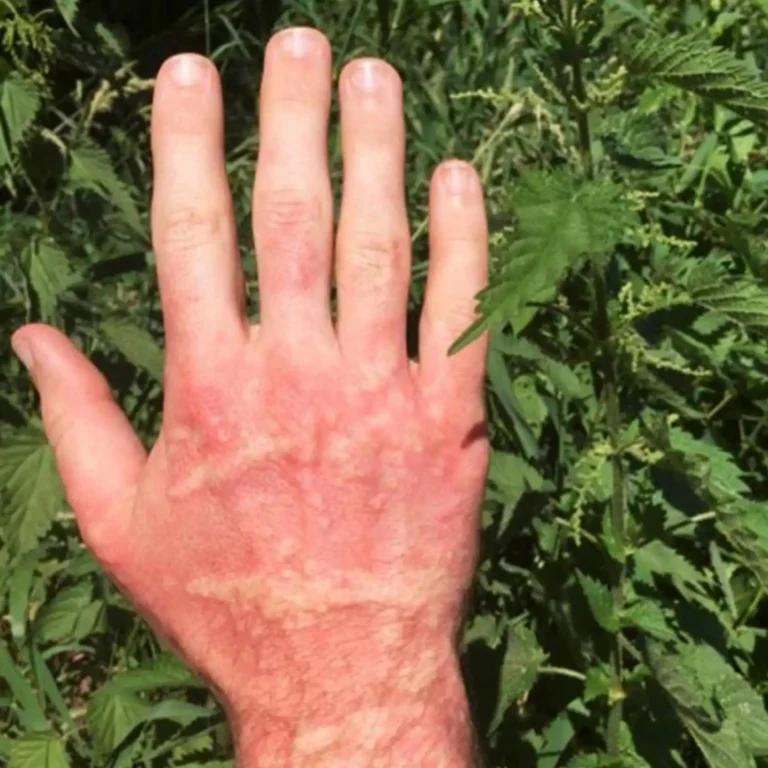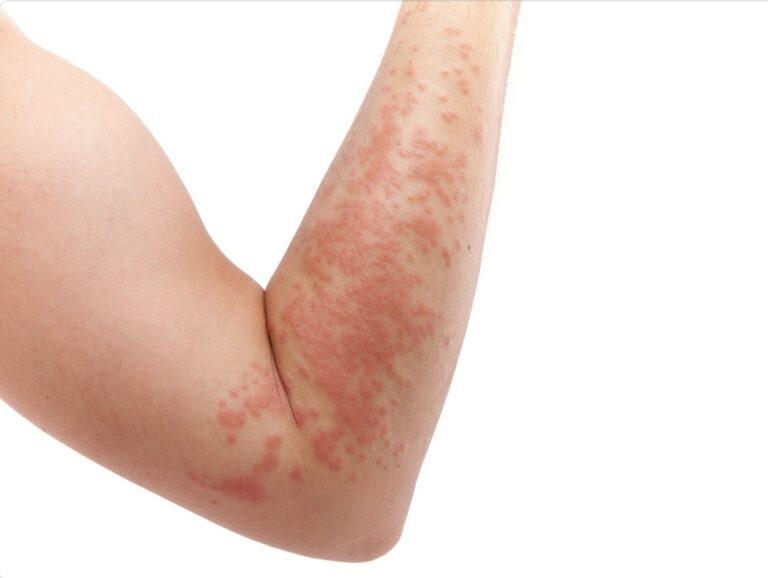Allergies
Get valuable insights into Allergies, including its causes, symptoms, prevention strategies, and treatment options, while also learning about how you can lower the cost of the medications used to treat Allergies.
MEDICAL INFORMATION
Allergies Key Facts
Related Medications
What is the definition of allergies
An allergy is an abnormal immune system response to substances that are typically harmless to most individuals. When a person with allergies comes into contact with an allergen, such as pollen, pet dander, certain foods, or medications, their immune system reacts excessively, perceiving the allergen as a threat. This exaggerated immune response triggers a cascade of reactions, leading to the release of histamines and other chemicals in the body. These chemical mediators cause allergic symptoms and can affect various organs or systems, such as the respiratory system, skin, gastrointestinal tract, or cardiovascular system. The symptoms of allergies can range from mild, such as sneezing or itching, to severe, potentially life-threatening reactions known as anaphylaxis. Allergies can develop at any age, and while some individuals may have a genetic predisposition to allergies, environmental factors also play a significant role in their development. Understanding the specific allergens and managing exposure to them is crucial in minimizing allergic reactions and improving quality of life for individuals with allergies.
What are the causes of allergies?
The causes of allergies are multifactorial, involving a combination of genetic predisposition and environmental factors. Here are some key factors contributing to the development of allergies:
Genetic Factors
Family History-Individuals with a family history of allergies have a higher likelihood of developing allergies themselves. Specific genes can increase the susceptibility to allergic conditions.
Immunological Factors
Dysregulated Immune Response: Allergies occur due to an exaggerated immune response to harmless substances. The immune system mistakenly identifies these substances, known as allergens, as harmful and triggers an immune reaction.
Environmental Factors
- Allergen Exposure: Regular exposure to allergens plays a significant role in the development of allergies. Common allergens include pollen, dust mites, cockroaches, mold spores, pet dander, insect venom, certain foods, and medications
- Early Life Exposures: Early exposure to allergens during infancy and childhood can contribute to the development of allergies. The hygiene hypothesis suggests that reduced exposure to microorganisms in early life may disrupt immune system regulation and increase the risk of allergies
- Air Pollution: Environmental factors like air pollution, cigarette smoke, and chemical irritants can aggravate allergic responses and increase the likelihood of developing allergies
Lifestyle Factors
- Diet and Nutrition: Some studies suggest that certain dietary factors may influence the development of allergies. For example, a diet high in fruits, vegetables, and omega-3 fatty acids may have a protective effect against allergies, while a diet high in processed foods and additives may increase the risk
- Breastfeeding: Breastfeeding has been associated with a reduced risk of allergies in infants, potentially due to the transfer of immune-protective factors from the mother to the child
- Obesity: Obesity has been linked to an increased risk of allergies, potentially due to chronic low-grade inflammation and altered immune function
It is important to note that while these factors contribute to the development of allergies, the precise mechanisms and interactions between genetic and environmental factors are still being investigated. The understanding of allergy development continues to evolve as research progresses.
What are the different types of allergies?
There are various types of allergies, each triggered by specific allergens. Here are some common types of allergies:
Seasonal Allergies (Allergic Rhinitis)
- Seasonal allergies, also known as hay fever, occur due to sensitivity to airborne substances like pollen from trees, grasses, or weeds
- Symptoms include sneezing, itchy or watery eyes, nasal congestion, and a runny or stuffy nose
- Seasonal allergies are often triggered during specific times of the year when the corresponding plants release their pollen
Food Allergies
- Food allergies result from the immune system’s reaction to certain proteins in food
- Common food allergens include peanuts, tree nuts, milk, eggs, wheat, soy, fish, and shellfish
- Symptoms range from mild (hives, itching) to severe (swelling, difficulty breathing) and can manifest immediately or up to two hours after consuming the allergenic food
Drug Allergies
- Drug allergies occur when the immune system reacts adversely to certain medications, such as antibiotics (penicillin), nonsteroidal anti-inflammatory drugs (NSAIDs), or chemotherapy drugs
- Symptoms can vary from mild (rash, itching) to severe (anaphylaxis) and may require immediate medical attention
Insect Sting Allergies
- Insect sting allergies result from an allergic reaction to venom injected during stings or bites from insects like bees, wasps, hornets, or fire ants
- Localized reactions include redness, swelling, pain, and itching at the site of the sting. In some cases, a severe allergic reaction known as anaphylaxis may occur, affecting the whole body
Contact Dermatitis
- Contact dermatitis is an allergic reaction that develops upon contact with certain substances, such as cosmetics, metals (nickel), latex, or plants (poison ivy)
- Symptoms include redness, itching, swelling, and a rash in the affected area
Allergic Asthma
- Allergic asthma is a type of asthma triggered by allergens, such as pollen, dust mites, pet dander, or mold spores
- Symptoms include wheezing, coughing, shortness of breath, and chest tightness, which are exacerbated in the presence of specific allergens
Atopic Eczema (Atopic Dermatitis)
It is important to remember that conditions like atopic dermatitis are not caused by allergies, however, certain allergies can worsen the symptoms of atopic dermatitis.
It’s important to note that allergies can vary in severity from mild to severe, and some allergies, like food allergies or insect sting allergies, can potentially lead to life-threatening anaphylactic reactions. Proper diagnosis and management under the guidance of a healthcare professional are essential for individuals with allergies.
What is the clinical presentation and symptoms of allergies?
Allergies can present with a wide range of symptoms that vary depending on the type of allergy and the individual’s immune response. Here are the common allergy symptoms and clinical presentations associated with allergies:
Respiratory Symptoms
- Sneezing: Frequent and repetitive sneezing bouts
- Runny or Stuffy Nose: Excessive nasal discharge or congestion (sinus allergies)
- Itchy or Watery Eyes: Persistent itching or redness of the eyes, accompanied by tearing
- Coughing: Dry or productive cough
- Wheezing: A whistling or rattling sound when breathing due to narrowed airways
- Shortness of Breath: Difficulty breathing or a sensation of breathlessness
Cutaneous Symptoms
- Hives (Urticaria): Raised, itchy, and red welts on the skin
- Itching: Generalized or localized itchiness of the skin
- Angioedema: Swelling in deeper layers of the skin, often around the eyes, lips, hands, or feet
It is important to remember that conditions like atopic dermatitis are not caused by allergies, however, certain allergies can worsen the symptoms of atopic dermatitis.
Gastrointestinal Symptoms
- Nausea: Feeling of queasiness or an upset stomach
- Vomiting: Forceful expulsion of stomach contents through the mouth
- Abdominal Pain: Cramping or discomfort in the abdominal region
- Diarrhea: Frequent and loose bowel movements
Systemic Symptoms
- Anaphylaxis: A severe, potentially life-threatening allergic reaction that can affect multiple body systems. Symptoms include:
- Swelling of the face, lips, tongue, or throat
- Difficulty breathing or wheezing
- Rapid heartbeat
- Dizziness or lightheadedness
- Loss of consciousness
Allergic Conjunctivitis
- Redness, itching, and swelling of the conjunctiva (the thin membrane covering the white part of the eye and the inner eyelids)
- Excessive tearing and a gritty sensation in the eyes
How are allergies diagnosed?
Diagnosing allergies involves a combination of medical history evaluation, physical examination, and allergy testing. Here are the common methods used in diagnosing allergies:
Medical History
The healthcare provider or immunology specialist will conduct a detailed medical history interview to understand the patient’s symptoms, their frequency, duration, and potential triggers. They will also inquire about any family history of allergies.
Physical Examination
A physical examination helps identify physical signs associated with allergies, such as skin reactions, nasal congestion, or wheezing.
Allergy Testing
Allergy testing helps determine the specific allergens triggering an individual’s allergic reactions. Common allergy testing methods include:
Skin Prick Tests
In these skin tests, small amounts of suspected allergens are pricked into the skin using a tiny needle. If a person is allergic, they will develop a small raised bump at the test site.
Blood Tests
Specific IgE (immunoglobulin E) blood tests measure the levels of allergen-specific antibodies (IgE antibodies) in the blood. This helps identify sensitization to specific allergens.
Patch Tests
Patch tests are used to diagnose allergic contact dermatitis. Small amounts of potential allergens are applied to patches that are then placed on the skin. The patches are examined for any allergic reactions after 48-72 hours.
Elimination Diets and Food Challenges
For suspected food allergies, an elimination diet may be prescribed, where potential allergenic foods are eliminated from the diet, followed by reintroduction to identify specific trigger foods.
Provocation Testing
In certain cases, provocation tests may be conducted under medical supervision to confirm a specific allergy. This involves controlled exposure to the suspected allergen to observe any allergic reactions.
Symptom Diary
Keeping a detailed record of symptoms, triggers, and their timing can help identify patterns and aid in diagnosis.
It’s important to consult with a healthcare professional or an allergist/immunologist for an accurate diagnosis. They will assess the individual’s symptoms, perform the necessary tests, and interpret the results to determine the specific allergens causing the allergic reactions. A precise diagnosis allows for targeted management and treatment strategies tailored to the individual’s needs.
What are the treatment options for allergies?
The treatment of allergies aims to alleviate symptoms, prevent future allergic reactions, and improve the individual’s quality of life. The specific treatment options depend on the type and severity of allergies. Here are some common treatment approaches:
Allergen Avoidance
- The first step in managing allergies is to identify and avoid exposure to allergens that trigger symptoms. This may involve:
- Pollen allergies: Monitoring pollen counts, staying indoors during high pollen seasons, closing windows, using air purifiers
- Food allergies: Reading food labels, avoiding trigger foods, informing restaurants and schools about specific dietary needs
- Insect sting allergies: Taking precautions to avoid insect stings, such as wearing protective clothing, using insect repellents, and being cautious in outdoor settings
Medications
- Antihistamines: Over-the-counter or prescription antihistamines, like Ketotifen, help relieve symptoms like sneezing, itching, and runny nose caused by allergies. Examples include Fexofenadine, Azelastine, Hydroxyzine, Cetirizine, levocetirizine, Loratadine, Ketotifen, Olopatadine
- Decongestants: Nasal decongestant sprays or oral medications can temporarily reduce nasal congestion
- Steroids (Nasal Sprays or Eye Drops): Prescription nasal corticosteroids can effectively manage nasal congestion, sneezing, and itching associated with allergic rhinitis. Examples include Ketorolac, Acular. Other steroids used can include Dexamethasone, Prednisone, Methylprednisolone
- Eye Drops: Prescription or over-the-counter eye drops can provide relief from itchy, watery eyes caused by allergic conjunctivitis
- Asthma Medications: Inhalers, bronchodilators, and anti-inflammatory medications are used to manage allergic asthma symptoms
Immunotherapy
- Allergy Injections (Subcutaneous Immunotherapy): In this long-term treatment approach, small amounts of allergens are injected under the skin, gradually desensitising the immune system to specific allergens. These are often commonly to as ‘allergy shots’
- Sublingual Immunotherapy: Allergen extracts are administered as tablets or drops under the tongue, with the aim of reducing allergic reactions and symptom severity
Emergency Medications
Epinephrine Auto-injectors: Individuals with severe allergies, especially those prone to anaphylaxis, may be prescribed epinephrine auto-injectors (e.g., EpiPen). These self-administered devices deliver a dose of epinephrine to quickly treat severe allergic reactions.
What Allergies support groups are available in the UK?
- Allergy UK: This is a leading national charity providing support, advice, and information for those living with allergic conditions. They offer a dedicated helpline, resources for sufferers, and even have an Allergy Awareness Week to promote understanding and management of allergies. Helpline: 01322 619898
- Anaphylaxis Campaign. This organization is specifically focused on supporting individuals and their families who are at risk of severe allergic reactions. They provide valuable information on allergens, treatments, and preventative measures. Helpline: 01252 542029
- British Society for Allergy & Clinical Immunology (BSACI). While this is primarily a professional organization for clinicians in the field of allergy and immunology, their website offers guidelines, resources, and patient information leaflets
- Asthma UK. Though it’s primarily focused on asthma, the organization also provides resources for those with allergies since asthma and allergies are often related. Helpline: 0300 222 5800
- National Eczema Society. This organization offers support for those suffering from eczema, which can sometimes be triggered or exacerbated by allergies. Helpline: 0800 089 1122
- Local Support Groups. Apart from these national organizations, there are often local support groups or community initiatives that may help individuals manage their allergies. Checking community boards, local newspapers, or asking healthcare professionals can guide you towards these resources
- Online Chat Forums and Communities: Beyond official organizations, many individuals find comfort, advice, and understanding through online forums like the NowPatient forum, communities, and social media groups. While these platforms can offer peer support, always consult with a healthcare professional before making changes to any treatment or management strategies
Remember, while support groups and organizations provide valuable information and resources, always consult with a qualified healthcare professional regarding personal medical concerns.
What Allergies support groups are available in the US?
- Food Allergy Research & Education (FARE). This is one of the leading organizations in the U.S. for information related to food allergies. They offer educational resources, advocacy initiatives, and support for research. Helpline: 1-800-929-4040
- Asthma and Allergy Foundation of America (AAFA). AAFA provides resources for those suffering from asthma and allergies, including educational materials, advocacy efforts, and community-based programs. Helpline: 1-800-7-ASTHMA
- American Academy of Allergy, Asthma & Immunology (AAAAI). A professional organization, the AAAAI offers a wealth of information for both professionals and the general public about allergies, asthma, and immunological disorders.National Eczema Association (NEA). For those who suffer from eczema, often related to allergies, the NEA provides resources, research updates, and community connections
- Kids With Food Allergies (KFA): A division of AAFA, this organization specifically provides resources and community support for families with children who have food allergies
- Allergic Living. This magazine offers an array of articles, recipes, and advice on living with allergies and celiac disease. They also have an online community for support
Remember, while these support groups and organizations offer valuable resources and information, it’s important to always consult with a qualified healthcare professional about personal medical situations and treatment decisions.
Summary
Allergies are prevalent immune-mediated disorders that affect millions of individuals worldwide. They result from an exaggerated immune response to normally harmless substances known as allergens. This article has provided a comprehensive overview of allergies, exploring their causes, symptoms, diagnosis, treatment options, and preventive measures. Understanding the underlying mechanisms of allergic reactions and the various types of allergies, such as seasonal, food, drug, and insect sting allergies, is essential in effectively managing and preventing allergic conditions. Diagnostic approaches, including medical history, physical examination, and allergy testing, play a crucial role in identifying specific allergens. Treatment strategies encompass allergen avoidance, medication, immunotherapy, and emergency preparedness. Furthermore, implementing lifestyle modifications and environmental control measures can help individuals reduce exposure to allergens and prevent allergic reactions. By increasing awareness and knowledge about allergies, healthcare professionals and individuals can collaborate to effectively manage and mitigate the impact of allergies on overall health and well-being.
Medical Disclaimer
NowPatient has taken all reasonable steps to ensure that all material is factually accurate, complete, and current. However, the knowledge and experience of a qualified healthcare professional should always be sought after instead of using the information on this page. Before taking any drug, you should always speak to your doctor or another qualified healthcare provider.
The information provided here about medications is subject to change and is not meant to include all uses, precautions, warnings, directions, drug interactions, allergic reactions, or negative effects. The absence of warnings or other information for a particular medication does not imply that the medication or medication combination is appropriate for all patients or for all possible purposes.










